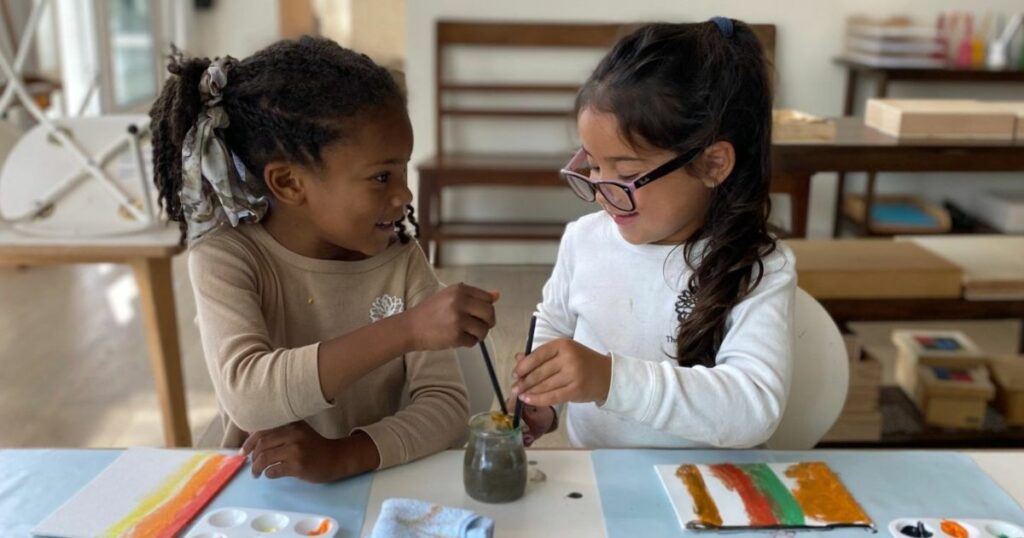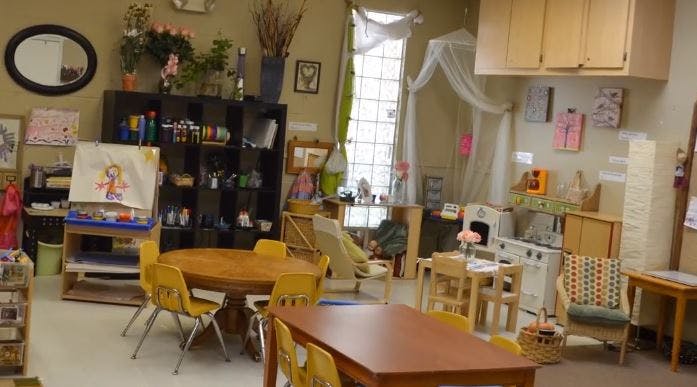Understanding Special Needs in the Montessori Context
Special needs is a broad term that encompasses various physical, emotional, and cognitive challenges. In the Montessori setting, we recognize that every child is unique and possesses distinct abilities.
Identification of Special Needs
Proper identification of special needs is vital to tailor an education plan that caters to each child’s requirements. We collaborate with specialists and parents to diagnose and understand the individual needs of the child.
The identification of special needs is a critical and multifaceted process involving the recognition and assessment of individual differences and needs in children. This process may include observations, standardized testing, medical evaluations, and consultations with specialists such as psychologists or therapists. Parents, teachers, and professionals collaborate to accurately diagnose and understand the specific needs, whether cognitive, emotional, physical, or developmental. The outcome of this process is the creation of an Individualized Education Plan (IEP) that guides the child’s educational and support services, ensuring an approach tailored to their unique needs and abilities.
Tailoring the Montessori Approach
The Montessori method’s flexibility allows us to adapt the curriculum to meet each child’s specific needs. From modifying the materials to offering individualized attention, we ensure that children with special needs receive the necessary support.
By offering individualized attention and utilizing hands-on, sensory-rich materials, the tailored Montessori approach fosters an inclusive environment where each child can thrive. Flexibility in pacing, modification of activities, and a strong collaboration with parents and specialists are key components in successfully tailoring the Montessori approach, ensuring that every child receives an education that resonates with their inherent strengths and interests.
Implementing Inclusive Practices in Montessori Classrooms
Adapting Montessori Materials
We carefully adapt Montessori materials to make them accessible to children with various needs. Whether it’s altering textures for sensory sensitivities or adjusting sizes for motor challenges, we focus on creating an engaging experience for every child.
The modification of learning materials to suit various needs ensures that all children can interact and engage with them, fostering meaningful learning experiences.
Professional Development of Educators
Our educators undergo rigorous training to understand the various special needs and the most effective ways to integrate these children into the classroom. Their expertise is instrumental in building an inclusive environment.
Providing teachers with a comprehensive understanding of diverse abilities, special needs, and inclusive teaching methods can play a pivotal role in fostering a classroom setting that is both welcoming and compassionate. This type of training is essential for ensuring that every student feels respected and encouraged to succeed. By arming educators with the necessary tools and knowledge, we can create a learning environment that is truly inclusive and supportive of all students. This training is crucial for ensuring that all students feel valued and supported.
Fostering Peer Understanding and Acceptance
We actively promote a culture of empathy and acceptance within the classroom. Educating peers about differences and encouraging collaboration helps in building a supportive community.
To create a welcoming and inclusive environment, it is important to instill values such as respect, understanding, and acceptance toward individuals with diverse abilities and backgrounds. This means recognizing and valuing the unique perspectives and experiences that each person brings to the table and working to create a culture of empathy and compassion. By embracing diversity and promoting inclusivity, we can build stronger communities and foster a sense of belonging for all individuals.
Collaboration with Parents and Specialists
Regular Communication with Parents
The role of parents in their child’s educational journey cannot be overstated. With regular meetings, progress reports, and open communication channels, parents are provided with crucial information and opportunities to stay engaged throughout the process. This level of transparency and collaboration allows parents to gain a deeper understanding of their child’s unique needs, progress, and potential challenges. In addition, parents are empowered to take an active role in decisions about their child’s educational path, which ultimately fosters a strong sense of partnership and shared responsibility for their child’s growth and development. The importance of parents in the education of their children cannot be emphasized enough. By regularly engaging in meetings, receiving progress reports, and keeping communication channels open, parents are equipped with critical information and opportunities to stay connected throughout the educational journey.
Working with Therapists and Special Educators
Collaborating with specialists helps us in developing and implementing strategies tailored to individual needs. This multidisciplinary approach ensures holistic development.
Occupational therapists, speech therapists, or physical therapists may be involved in assessing and addressing specific needs. Their expertise guides the adaptation of classroom materials and practices.
Special education teachers can provide insights into specialized strategies and interventions tailored to the child’s unique learning profile.
By forming a team with various specialists, educators ensure a holistic understanding of the child’s needs. This collaboration fosters a unified approach, where all aspects of the child’s development are considered.
The Impact of Inclusion on Montessori Communities
Benefits to Children with Special Needs
At Inclusion, the welfare of children with special needs is given utmost priority through a nurturing and supportive environment. Our approach not only focuses on academic excellence but also encourages social development, ensuring that each child is provided with the tools necessary to flourish. By creating an inclusive space that caters to individual needs, we aim to provide a comprehensive education that benefits every child.
Enrichment of the Learning Experience for All
The integration of various viewpoints and diverse cultural backgrounds within a classroom setting creates a conducive atmosphere for learning, where individuals can develop a holistic understanding of the world around them. This inclusive approach not only fosters teamwork but also deepens one’s appreciation and awareness of different cultures, ultimately enhancing the educational experience for all students involved.
Conclusion
Montessori’s approach to special needs education is grounded in a deep philosophy that recognizes and values the unique qualities of every child. At its core, this approach focuses on providing tailored materials and resources, fostering a supportive community, and prioritizing professional development for educators. This ensures that every child, regardless of their abilities or challenges, receives an exceptional educational experience that promotes independence, growth, and lifelong learning.
The inclusion of special needs education in Montessori represents a dynamic and flexible approach that enriches the learning environment and embodies the core values of compassion and empathy. It transcends traditional teaching methods and encourages us to envision a world where every child is empowered to achieve their full potential. In Montessori, inclusion is not merely a strategy, but a reflection of a broader vision of human potential and interconnectedness. It points towards a future that is more equitable and just, where everyone can thrive and contribute to a vibrant and diverse society.






